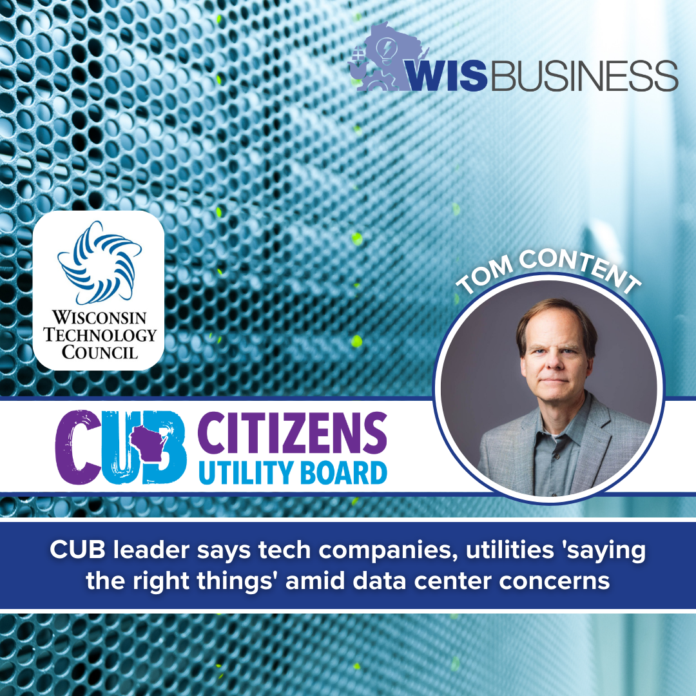The head of the Citizens Utility Board says tech companies and utilities are “saying the right things” about who will foot the bill for costly data center development, though concerns remain.
Tom Content, who leads the utility customer advocacy organization, spoke yesterday during a Wisconsin Technology Council event on energy concerns related to the unprecedented data center development happening in the state.
“So Microsoft is saying ‘We’re going to pay our fair share for the assets needed to serve,’ the utilities are saying that ‘We’ve got rate plans with the data centers, or contracts … that are designed to ensure fairness for all customers,’” he said, adding CUB is taking a “trust but verify” approach.
Content, a former journalist with the Milwaukee Journal Sentinel, said CUB wants to make sure the businesses driving greater energy costs through AI and data centers are the ones that end up paying for it.
Along with cost questions around data centers, yesterday’s discussion touched on environmental concerns for the “hyperscale” projects popping up in the state.
Todd Malan, executive vice president for government relations and external affairs at QTS Data Centers, argued these large projects are necessary for the modern economy while acknowledging some community-level worries. The company last month announced details for a planned data center campus in Dane County, previewing a “multibillion dollar” development for the area.
Malan said the company has listened to local “feedback” about the large amounts of water needed to sustain cooling processes for massive data centers.
“A lot of data centers were using cooling technology that used evaporative technologies, so water would come in, it would be used to take the heat out of the data halls … so you’re losing water in the process,” he said. “What we did is actually come up with an innovative approach in which we’re using a totally circular system of cooling.”
The planned Dane County project would have a system that wouldn’t need additional water over time to continue cooling the machines, Malan said. He said QTS has been working with DeForest officials and other locals as it designs the project to address concerns like these.
“There’s a huge role in terms of listening to communities and being responsive to what people’s concerns are about the impacts of these large-scale data centers, because we have the ability to make changes in things like design, or siting,” he said.
But Content pointed to other questions about the future of data center development, raising the possibility of an “AI bubble” and “circular relationships” between the largest U.S. tech firms that are driving growth in AI and related infrastructure.
“There’s a lot of concern … in China, they developed much more energy-efficient ways to do AI, more recently a Chinese company called [Moonshot AI] did … a significant AI development that was at a fraction of the cost of what kind of the vision is that’s been spelled out for the United States tech industry,” he said.
Watch the video.







